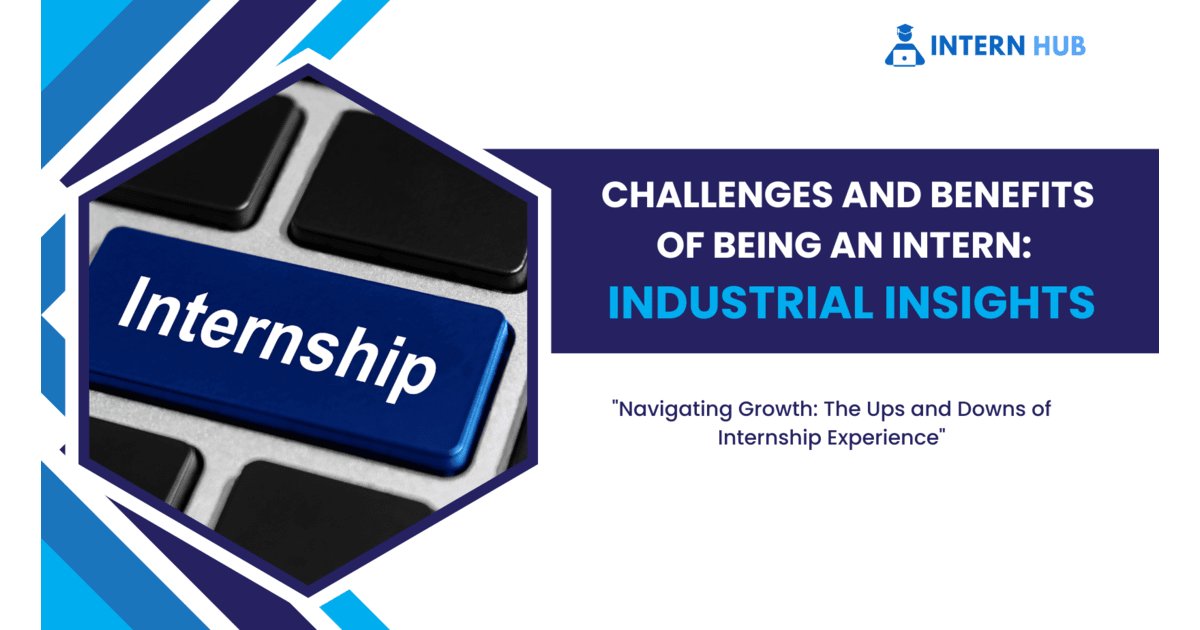
Mastering Stress During Your Internship: Ultimate Tips for Thriving Under Pressure
Embarking on an internship is a pivotal moment in your career journey, brimming with opportunities for growth and discovery. Yet, as exciting as it is, an internship can also be a source of significant stress. The combination of new responsibilities, tight deadlines, and the pressure to make a positive impression can sometimes feel overwhelming. But don’t worry; mastering stress management is key to not only surviving but thriving during your internship. Here’s an extensive guide to help you navigate and conquer stress, turning it into a catalyst for success.
Understanding the Roots of Internship Stress
Before tackling stress, it's essential to understand where it comes from. Internships can be stressful due to various factors, including:
- High Expectations: The pressure to perform well and meet expectations can be daunting.
- Heavy Workloads: Balancing multiple tasks and deadlines can quickly become overwhelming.
- New Environment: Adapting to a new workplace culture and dynamics adds to the stress.
Recognizing these stressors is the first step towards managing them effectively. Now, let’s explore some strategies to help you keep stress in check and make the most of your internship experience.
- Master the Art of Organization and Prioritization
- Create a Daily Plan: Begin each day with a well-organized to-do list. Prioritize tasks based on urgency and importance. Use tools like planners, digital apps, or sticky notes to keep track of your responsibilities.
- Divide and Conquer: Large projects can be intimidating. Break them down into smaller, more manageable tasks. Tackling these smaller tasks step-by-step makes them less daunting and easier to manage.
- Use Time Management Tools: Embrace time management tools such as calendars and task management apps. These tools help you stay on track, set deadlines, and allocate time for each task efficiently.
- Develop Strong Time Management Skills
- Set Realistic Deadlines: When planning your tasks, be realistic about how long each will take. Allocate extra time for unforeseen challenges and be flexible with deadlines to accommodate any adjustments.
- Prioritize Tasks: Identify which tasks are most critical and tackle those first. Use techniques like the Eisenhower Matrix to sort tasks into categories of importance and urgency, helping you focus on what truly matters.
- Avoid Multitasking: Although it might seem efficient, multitasking can lead to mistakes and increased stress.
- Embrace Self-Care and Maintain a Healthy Work-Life Balance
- Incorporate Regular Breaks: Integrate short breaks into your workday. Step away from your desk to stretch, take a walk, or simply relax. Regular breaks can boost productivity and mental well-being.
- Prioritize Rest and Recovery: Ensure you get enough sleep and downtime. Fatigue can heighten stress and affect performance. Aim for a consistent sleep schedule and make time for relaxation outside work hours.
- Engage in Stress-Relief Activities: Find activities that help you unwind, such as exercise, reading, or hobbies. Engaging in enjoyable activities can provide a mental break and reduce overall stress levels.
- Build a Supportive Network
- Connect with Fellow Interns and Colleagues: Form relationships with other interns and colleagues. Sharing experiences, challenges, and successes with others can provide emotional support and practical advice.
- Seek Guidance from Mentors: Engage with mentors who can offer guidance, encouragement, and advice. Their experience and insights can help you navigate challenges and build confidence.
- Develop Resilience and Adaptability
- Build Resilience: Cultivate resilience by developing a positive outlook and learning from setbacks. View challenges as opportunities for growth rather than insurmountable obstacles.
- Stay Flexible: Adaptability is key in a dynamic work environment. Be open to changes and willing to adjust your approach when necessary. Flexibility can help you navigate stress and unexpected developments more effectively.
- Develop Resilience and Adaptability
- Build Resilience: Cultivate resilience by developing a positive outlook and learning from setbacks. View challenges as opportunities for growth rather than insurmountable obstacles.
- Stay Flexible: Adaptability is key in a dynamic work environment. Be open to changes and willing to adjust your approach when necessary. Flexibility can help you navigate stress and unexpected developments more effectively.
- Improve Communication Skills
- Clarify Expectations: Ensure you understand your tasks and responsibilities clearly. If anything is unclear, ask for clarification from your supervisor or colleagues to avoid misunderstandings and reduce stress.
- Communicate Effectively: Practice clear and concise communication. Keep your team informed about your progress and any issues you encounter. Effective communication can help prevent misunderstandings and manage expectations.
- Celebrate Your Successes
- Acknowledge Achievements: Take time to celebrate your successes, both big and small. Recognizing your accomplishments boosts morale and helps reinforce your confidence.
- Reward Yourself: Set up small rewards for achieving your goals or completing challenging tasks. Treating yourself can provide motivation and a sense of accomplishment.
- Implement Stress-Relief Techniques
- Use Stress-Busting Gadgets: Having a stress ball or fidget spinner at your desk can be a great way to release tension during busy moments. Squeeze it or spin it to help calm your nerves and refocus.
- Design a Relaxation Corner: Set up a small area in your workspace with items that help you relax—like a calming plant, inspirational quotes, or soothing music. Spend a few minutes in this space to recharge when you’re feeling stressed.
- Implement Mini-Meditations: Incorporate quick breathing exercises into your day. Close your eyes, take deep breaths, and focus on your breath for just two minutes. This simple practice can help reduce stress and improve focus.
- Work in Short Bursts: Use the Pomodoro Technique by working for 25 minutes and then taking a 5-minute break. This method helps manage time efficiently and prevents burnout by breaking tasks into manageable chunks.
- Do a Desk Exercise: Incorporate quick exercises into your day, like stretching, seated leg lifts, or a few quick squats. Physical activity can help release stress and increase your energy levels.
- Buddy Up: Partner with a colleague or fellow intern to share experiences and support each other through stressful moments. Having someone to talk to can provide comfort and practical advice.
- Snack Smart: Keep healthy, mood-boosting snacks at your desk, such as nuts, fruit, or dark chocolate. Eating nutritious snacks can improve your energy levels and mood, helping you handle stress better.
- Listen to Your “Focus Playlist: Create a playlist of music that helps you concentrate and relax. Listening to your favorite tunes while working can help reduce stress and improve your productivity.
Thriving Under Pressure: The Path Forward
Effectively managing stress during your internship is crucial for making the most of this
valuable experience. By adopting a proactive approach, enhancing problem-solving skills,
developing resilience, improving communication, focusing on personal growth, utilizing
stress management resources, fostering a positive work environment, celebrating successes,
and practicing gratitude, you can navigate the pressures of your internship with confidence
and composure.
Remember, an internship is not just a stepping stone in your career,it's also an opportunity
to learn, grow, and build a foundation for your future. Embrace the challenges, use these
strategies to manage stress, and approach your internship with enthusiasm and resilience.
You have the potential to excel and make a meaningful impact. Believe in yourself and enjoy
the journey!


